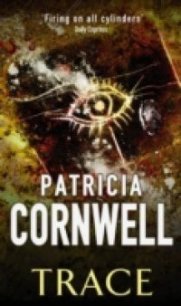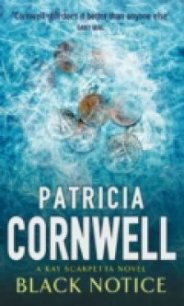All That Remains - Cornwell Patricia (читать хорошую книгу полностью TXT) 📗
"Thank you for the reassuring thought, Mr. FBI. And now I'm going home."
I opened the door. "You've gotten me into enough trouble for one night."
"Hey. You started it."
"I most certainly did not."
"Kay?" He got serious. "What do we do now? I mean, I'm going back to Denver tomorrow. I don't know what's going to happen, what I can make happen or if I should try to make anything happen."
There were no easy answers. There never had been with us.
"If you don't try to make anything happen, nothing will."
"What about you?" he asked.
"There's a lot of talking we need to do, Mark."
He turned on the headlights and fastened his seat belt. "What about you?" he asked again. "It takes two to try."
"Funny you should say that."
"Kay, don't. Please don't start in."
"I need to think."
I got out my keys. I was suddenly exhausted.
"Don't jerk me around."
"I'm not jerking you around, Mark," I said, touching his cheek.
We kissed one last time. I wanted the kiss to go on for hours, and yet I wanted to get away. Our passion had always been reckless. We had always lived for moments that never seemed to add up to any sort of future.
"I'll call you," he said.
I opened my car door.
"Listen to Benton," he added. "You can trust him. What you're involved in is very bad stuff."
I started the engine.
"I wish you'd stay out of it."
"You always wish that," I said.
Mark did call late the following night and again two nights after that. When he called a third time, on February tenth, what he said sent me out in search of the most recent issue of Newsweek.
Pat Harvey's lusterless eyes stared out at America from the magazine's cover. A headline in bold, black letters read THE MURDER OF THE DRUG CZAR'S DAUGHTER, the "exclusive" inside a rehashing of her press conference, her charges of conspiracy, and the cases of the other teenagers who had vanished and been found decomposed in Virginia woods. Though I had declined to be interviewed for the story, the magazine had found a file photograph of me climbing the steps of Richmond's John Marshall Court House.
The caption read, "Chief Medical Examiner releases findings under threat of court order."
"It just goes with the turf. I'm fine," I reassured Mark when I called him back.
Even when my mother rang me up later that same night, I remained calm until she said, "There's someone here who's dying to talk to you, Kay " My niece, Lucy, had always had a special talent for doing me in.
"How come you got in trouble?" she asked.
"I didn't get in trouble."
"The story says you did, that someone threatened you."
"It's too complicated to explain, Lucy."
"It's really awesome," she said, unfazed. "I'm going to take the magazine to school tomorrow and show it to everybody."
Great, I thought.
"Mrs. Barrows," she went on, referring to her homeroom teacher, "has already asked if you can come for career day in April… " I had not seen Lucy in a year. It did not seem possible she was already a sophomore in high school, and though I knew she had contact lenses and a driver's license, I still envisioned her as a pudgy, needy child wanting to be tucked into bed, an enfant terrible who, for some strange reason, had bonded to me before she could crawl. I would never forget flying to Miami the Christmas after she was born and staying with my sister for a week. Lucy's every conscious minute, it seemed, was spent watching me, eyes following my every move like two luminous moons. She would smile when I changed her diapers and howl the instant I walked out of the room.
"Would you like to spend a week with me this summer?"
I asked.
Lucy hesitated, then said disappointedly, "I guess that means you can't come for career day."
"We'll see, all right?"
"I don't know if I can come this summer."
Her tone had turned petulant. "I've got a job and might not be able to get away."
"It's wonderful you have a job."
"Yeah. In a computer store. I'm going to save enough to get a car. I want a sports car, a convertible, and you can find some of the old ones pretty cheap."
"Those are death traps," I said before I could stop myself. "Please don't get something like that, Lucy. Why don't you come see me in Richmond? We'll go around and shop for cars, something nice and safe."
She had dug a hole, and as usual, I had fallen in it. She was an expert at manipulation, and it didn't require a psychiatrist to figure out why. Lucy was the victim of chronic neglect by her mother, my sister.
"You are a bright young lady with a mind of your own," I said, changing tactics. "I know you'll make a good decision about what to do with your time and money, Lucy. But if you can fit me in this summer, maybe we can go somewhere. The beach or mountains, wherever you'd like. You've never been to England, have you?"
"No. "
"Well, then, that's a thought."
"Really?" she asked suspiciously.
"Really. I haven't been in years," I said, warming up to the idea. "I think it's time for you to see Oxford and Cambridge, the museums in London. I'll arrange a tour of Scotland Yard, if you'd like, and if we could manage to get away as early as June, we might be able to get tickets for Wimbledon."
Silence.
Then she said cheerfully, "I was just teasing. I don't really want a sports car, Aunt Kay."
The next morning there were no autopsies, and I sat at my desk trying to diminish piles of paperwork. I had other deaths to investigate, classes to teach, and trials demanding my testimony, yet I could not concentrate. Every time I turned to something else, my attention was drawn back to the couples. There was something important I was overlooking, something right under my nose.
I felt it had to do with Deborah Harvey's murder.
She was a gymnast, an athlete with superb control of her body. She may not have been as strong as Fred, but she would have been quicker and more agile. I believed the killer had underestimated her athletic potential, and this was why he momentarily lost control of her in the woods. As I stared blankly at a report I was supposed to be reviewing, Mark's words came back to me. He had mentioned "kill zones," officers at Camp Peary utilizing automatic weapons, grenades, and night vision equipment to hunt each other down in fields and woods. I tried to imagine this. I began toying with a gruesome scenario.
Perhaps when the killer abducted Deborah and Fred and took them to the logging road, he had a terrifying game in store for them. He told them to take off their shoes and socks, and bound their hands behind their backs. He may have been wearing night vision goggles, which enhanced moonlight, making it possible for him to see quite well as he forced them into the woods, where he intended to track them down, one at a time.
I believed Marino was right. The killer would have gotten Fred out of the way first. Perhaps he told him to run, gave him a chance to get away, and all the while Fred was stumbling through trees and brush, panicking, the killer was watching, able to see and move about with ease, knife in hand. At the opportune moment, it would not have been very difficult for him to ambush his victim from behind, yoke arm under chin and jerk the head back, then slash through the windpipe and carotid arteries. This commando style of attack was silent and swift. If the bodies were not discovered for a while, the medical examiner would have difficulty finding a cause of death because tissue and cartilage would have decomposed.
I took the scenario further. Part of the killer's sadism might have been to force Deborah to witness her boyfriend being tracked and murdered in the dark. I was considering that once they were in the woods, the killer held her captive audience by binding her feet at the ankles, but what he did not anticipate was her flexibility. It was possible that while he was occupied with Fred, she managed to bring her bound hands under her buttocks and work her legs through her arms, thus getting her hands in front of her. This would have allowed her to untie her feet and defend herself.


